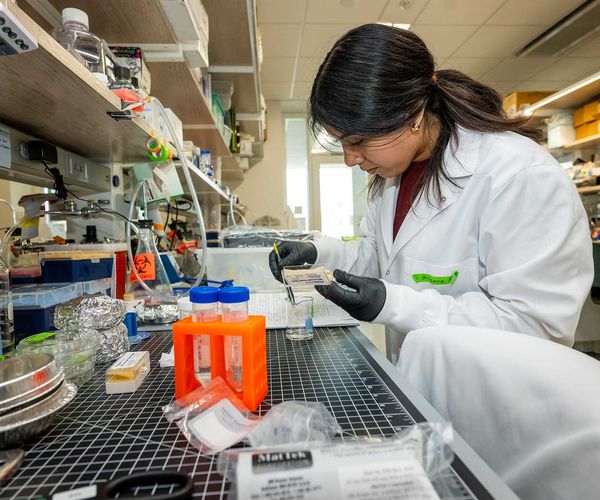Brianna Perales (ENG’28) has always loved hands-on work and problem-solving. Growing up, her family didn’t have the resources to send her to summer science camps. Instead, Perales would make her own toy claw vending machines out of cereal boxes and scrap plastic, finding joy in building something functional. Later, she joined STEM-focused clubs in high school that only furthered her engineering interest and abilities. But after learning her lungs had developed scar tissue from a nasty bout of pneumonia, Perales’ quest for discovery found a new purpose: finding a way to treat—and even regenerate—tissue damage in patients like herself.
When Perales came to Boston University to study electrical and biomedical engineering—the first in her family to go to college—she looked for ways to have an immediate impact.
This past year, Perales applied for a BU College of Engineering–affiliated program, Research Engineering and Mentoring-Includes (REM-Includes), designed to give first-generation and low-income college students their first taste of lab time. It’s run by the BU-led CELL-MET, a National Science Foundation (NSF) Engineering Research Center in Cellular Metamaterials. The center, funded by a 10-year NSF grant and housed at the BU Photonics Center, is a collaboration between partner institutions—BU, Florida International University, and the University of Michigan—that seeks to create breakthroughs in cardiovascular care, particularly in the areas of cardiac tissue engineering and regenerative medicine.
Read the full story at the Brink
